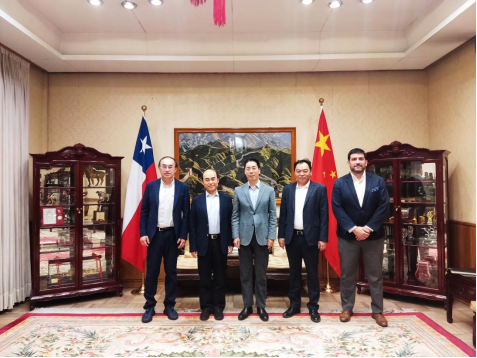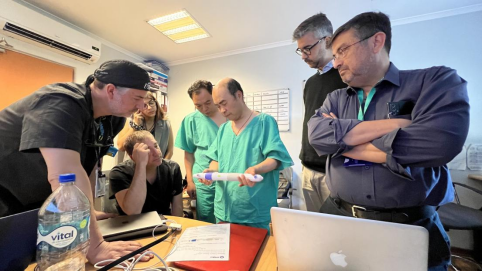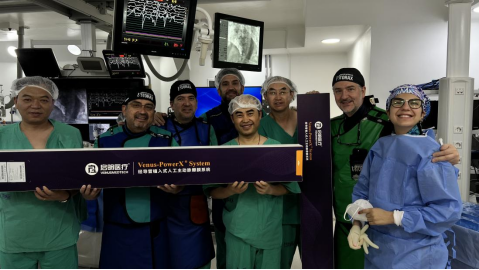
On December 4, 2023, Professor Chen Mao,
an expert in structural heart diseases from West China Hospital (WCH), was
invited to Chile's National Chest Hospital (Nacional del Tórax Santiago Chile)
to present the Venus-PowerX technology, the world's first fully-retrievable
transcatheter heart valve after full release developed in China. This
technology could provide solutions for heart valve diseases to countries along
the Belt and Road Initiative. During the visit, Mr. Niu Qingbao, Chinese
Ambassador to Chile, met with Professor Chen Mao and his team.

Professor Chen Mao introduced the academic
exchanges and collaborations between our hospital and medical institutions in
Chile, outlining the primary activities of this visit. He expressed willingness
to further advance academic exchanges and collaborations in medicine with
Chile. Ambassador Niu Qingbao highlighted Chile's participation in the Belt and
Road Initiative, emphasizing the cooperation between the two countries as a
testament to people-to-people connectivity. He expressed hopes that future collaborations
would bring tangible benefits to patients in Chile and promote friendship
between the two nations.

WCH's cardiology department is one of
China's largest Transcatheter Aortic Valve Replacement (TAVR) centers. Since
performing the first TAVR in the central and western regions of China in April
2012, the department has conducted around 2000 TAVR procedures, along with transcatheter
mitral and tricuspid interventions, accumulating extensive experience in
interventional treatment for aortic valve diseases.
The Venus-PowerX utilizes the original
Venus-Endura technology, providing superior durability, biocompatibility, and
anti-calcification properties to the valve, allowing for dry storage of the
valve. Even after 100% complete release, the valve can still be retrieved,
exhibiting outstanding prevention of paravalvular leakage. This innovative
technology offers a brand-new solution to the clinical challenges faced by
patients globally with existing aortic valve stenosis.